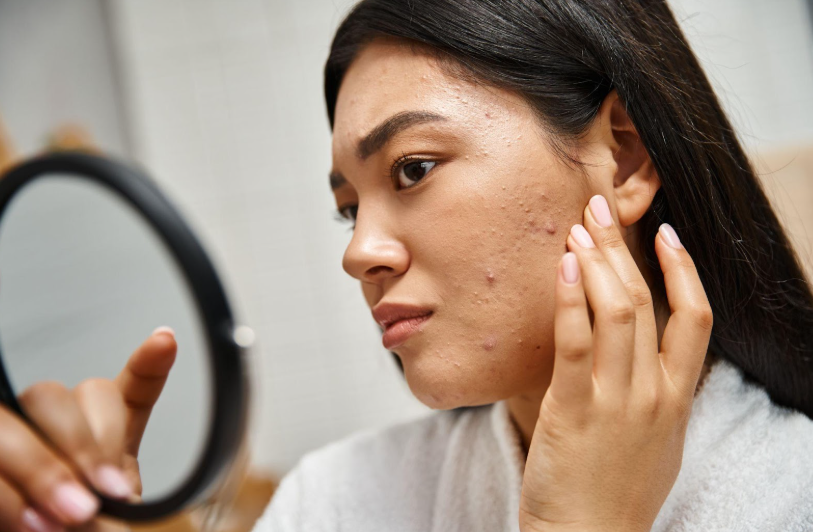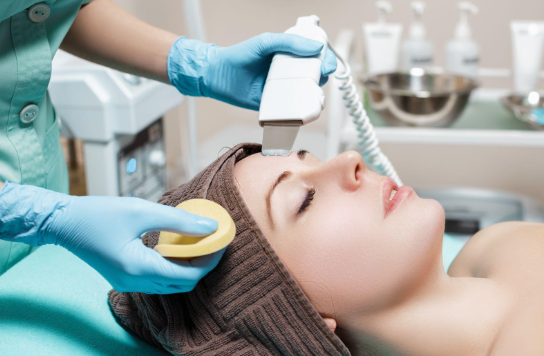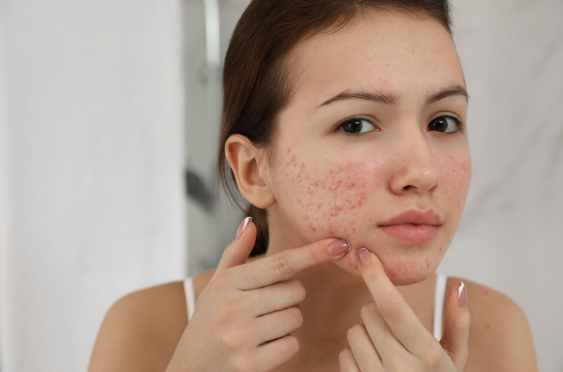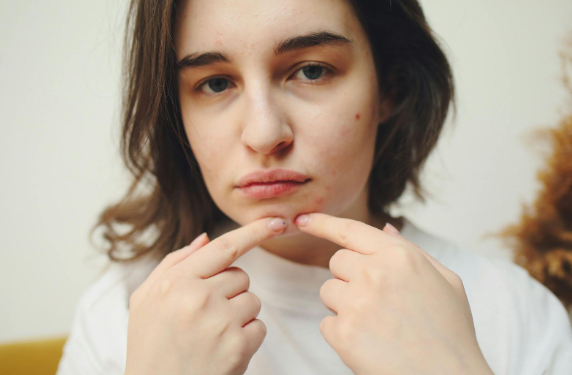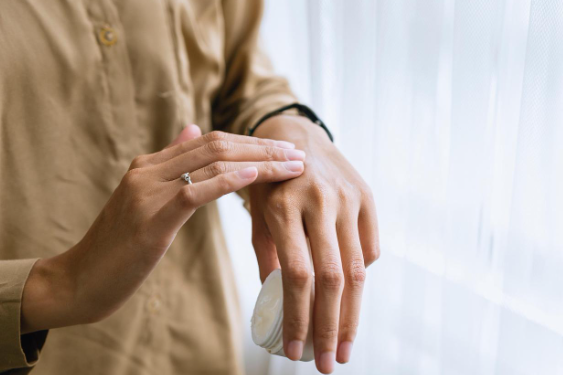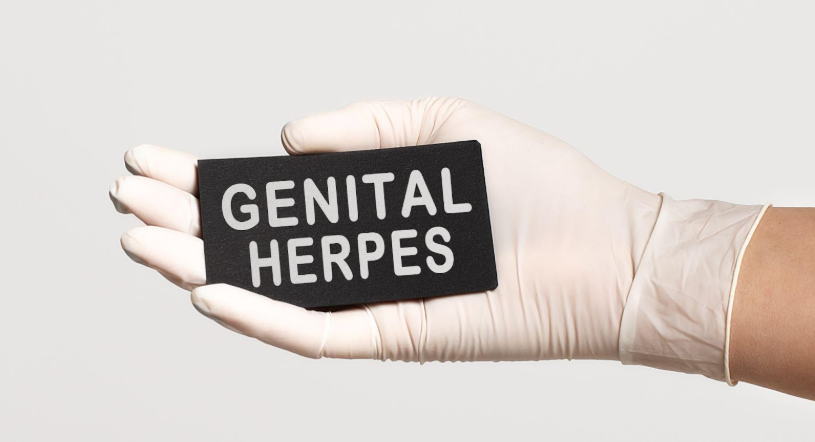Heat and Acne: How to Prevent Summer Breakouts and Oily Skin
Heat and Acne: How to Prevent Summer Breakouts and Oily Skin
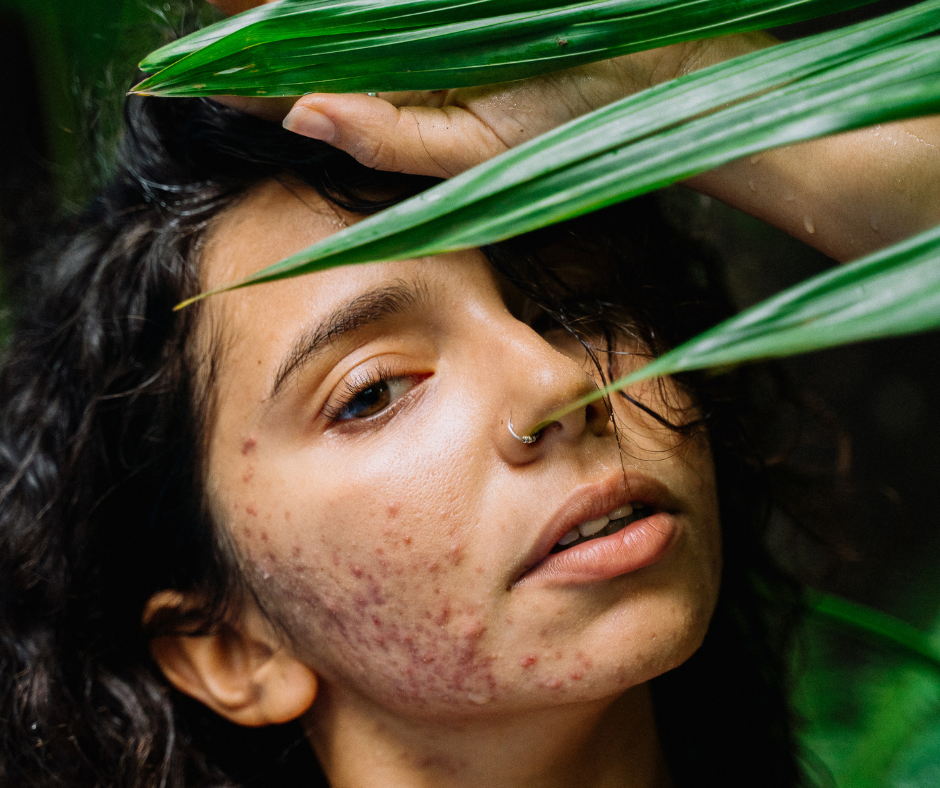
Summer is a time for beach trips, backyard barbecues, and sunshine-filled adventures, but for many people, it also brings along an unwanted guest: acne. Rising temperatures and increased humidity can wreak havoc on your skin, making it feel greasy, congested, and irritated.
If you’ve ever noticed more breakouts during the summer months, you’re not alone. The good news is that you don’t have to let the heat control your complexion. With the right skincare approach and lifestyle habits, you can enjoy the season without sacrificing your skin’s health.
Why Summer Heat Triggers Acne
When the weather heats up, your body naturally produces more sweat to keep you cool. This sweat mixes with the natural oils on your skin, known as sebum. The combination of sweat, oil, and bacteria can easily clog pores, creating the perfect environment for acne to develop. Add in the friction from hats, sunglasses, or helmet straps, and your skin faces even more irritation and potential for breakouts.
Hormones also affect acne, especially during the warmer months. Some people experience a spike in oil production during the summer due to increased activity levels and higher body temperatures. If you already have oily or acne-prone skin, this excess oil can quickly lead to inflammation and clogged pores.
How Heat Affects Oily Skin
Oily skin tends to become more problematic in hot weather. The sebaceous glands, which produce oil, ramp up activity in response to heat and humidity. While sebum helps keep skin moisturized and protected, too much of it can be a problem. Excess oil sits on the skin’s surface, attracting dirt and bacteria that contribute to acne.
Heat can also increase blood flow and inflammation in the skin, which may make breakouts appear redder and more irritated than usual. For those with acne-prone skin, summer often feels like a balancing act between preventing oil buildup and maintaining healthy hydration.
The Importance of Cleansing the Right Way
Over-washing or using the wrong cleanser during the summer months can make your skin worse. Cleansing too often or with harsh products can strip your skin of its natural oils, which triggers it to produce even more oil to compensate.
Make sure to use a gentle, non-comedogenic cleanser that removes sweat, dirt, and oil without over-drying your skin. Cleansing in the morning and evening is usually all you need, but if you’ve had a particularly sweaty day or worked out, it’s smart to rinse your face shortly afterward. Just take the time to follow up with a light moisturizer to keep your skin balanced.
Moisturizing Oily Skin Is Still a Must
It might sound a little backwards, but oily skin still needs moisture. When your skin is dehydrated, it actually tries to compensate by producing more oil. Skipping moisturizer during the summer could leave you with even shinier skin and more breakouts.
The trick is to choose the right moisturizer. Look for formulas that are oil-free, lightweight, and labeled as non-comedogenic. Gel-based moisturizers are often ideal for summer because they hydrate the skin without making it feel greasy or heavy. A well-moisturized face is better equipped to handle heat and less prone to inflammation.
Sunscreen Without the Breakouts
Sunscreen becomes a daily must in the summer. For those who are prone to acne, the challenge is to find a sunscreen that won’t clog your pores or cause breakouts. Some traditional sunscreens contain heavy oils or thick ingredients that can trap sweat and bacteria on your skin.
If you have acne-prone skin, choose a mineral sunscreen or one labeled as oil-free and non-comedogenic. These formulas are designed to sit on the skin without sinking into pores. If you’re using acne treatments like retinoids or benzoyl peroxide, sunscreen is even more important, as these products can make your skin more sensitive to the sun.
Managing Sweat and Preventing Pore Clogging
Sweating is a natural and necessary way for your body to cool down, but letting sweat sit on your skin for too long can lead to breakouts. After exercising or spending time in the heat, try to rinse off as soon as possible. If a full face wash isn’t convenient, using gentle cleansing wipes can help remove excess sweat and oil in the meantime.
Wearing breathable fabrics can also make a difference. Tight clothing and gear can trap sweat against your skin, especially in areas like your back, chest, and shoulders. Try to choose lightweight, loose-fitting clothing that allows your skin to breathe and keeps sweat from lingering.
Avoiding Makeup Meltdowns and Clogged Pores
In hot weather, heavy makeup can mix with sweat and oil, increasing the likelihood of clogged pores and acne. Foundation and concealer can melt into your skin, making breakouts worse and drawing attention to any existing blemishes.
If you choose to wear makeup during the summer, go for lightweight, oil-free, and non-comedogenic formulas. Mineral makeup is often a great choice because it doesn’t suffocate the skin and usually contains fewer irritating ingredients. And always remember to remove your makeup thoroughly before bed to give your skin a chance to recover overnight.
Keeping Your Hands and Hair Off Your Face
It might seem like a small thing, but touching your face throughout the day transfers dirt, oil, and bacteria from your hands to your skin. This can lead to clogged pores and new breakouts, especially during the summer when sweat adds an extra layer of grime.
Hair products can also be a culprit. If you use gels, pomades, or sprays, make sure they don’t come into contact with your forehead or temples. These products can cause breakouts along the hairline, which is a reaction commonly referred to as pomade acne. Try pulling your hair back during especially hot days, and wash your hair regularly if it gets oily quickly.
The Role of Diet and Hydration
What you eat and drink can have a noticeable impact on your skin, particularly during the summer. Staying hydrated helps your body flush out toxins and keeps your skin looking plump and healthy. When you're dehydrated, your skin can become dry and irritated, which may trigger more oil production and breakouts.
In terms of diet, consuming too much sugar, dairy, or highly processed foods can lead to inflammation and acne flare-ups in some people. Summer is the perfect time to take advantage of fresh fruits and vegetables that provide vitamins and antioxidants that support clear skin. Including foods like salmon and walnuts, which are rich in omega-3 fatty acids, can also help reduce inflammation and keep acne in check.
The Benefits of Professional Skincare Treatments
Sometimes, despite your best efforts, breakouts persist. If over-the-counter products aren’t delivering results, or if summer makes your acne significantly worse, a visit to a dermatologist can help. Professional treatments can target the root causes of your acne and provide relief that drugstore products can’t match.
Options like chemical peels, laser therapy, or prescription medications can make a big difference in controlling acne and preventing new breakouts. Dermatologists can also recommend medical-grade skincare products that are better suited for your specific skin type and summer concerns.
When to See a Dermatologist
It’s common to experience a few breakouts here and there, especially during the summer months. But if you’re dealing with painful, cystic acne or if your skin issues are affecting your confidence, it may be time to seek professional help. A dermatologist can assess your skin, rule out underlying conditions, and create a customized treatment plan.
Getting on top of acne early can help prevent scarring and reduce the stress that often comes with persistent skin issues. You don’t have to navigate the challenges of summer skin alone. A professional can guide you through the right treatments and skincare adjustments to help you enjoy clear, healthy skin year-round.
Creating a Summer Skincare Routine That Works
The secret to managing summer acne lies in consistency. A good skincare routine doesn’t have to be complicated, but it should be tailored to meet your skin’s changing needs. In the warmer months, focus on gentle cleansing, light moisturization, and daily sun protection. Avoid over-exfoliating or using too many products at once, which can irritate the skin and worsen breakouts.
It’s also a good idea to listen to your skin. If you notice a new product is causing irritation, it may not be right for your skin type. Stick with trusted ingredients like salicylic acid, niacinamide, and benzoyl peroxide, which are known for their acne-fighting properties. And always patch test new products before applying them to your entire face.
Stay Confident and Comfortable in Your Skin This Summer
Acne can be frustrating, especially when it seems like you’re doing and trying everything right. But remember, summer skin challenges are extremely common and manageable. With a bit of effort, the right products, and support from a dermatologist when needed, you can maintain a glowing complexion even on the hottest days.
At
Pine Belt Dermatology, our team of experienced dermatologists understands the unique skin challenges that come with warmer weather. If you need personalized skincare advice, professional acne treatments, or solutions tailored to your skin type, we’re ready to support you.
Reach out to us today and take the first step toward clearer, healthier skin and getting the most out of this summer as you possibly can!
